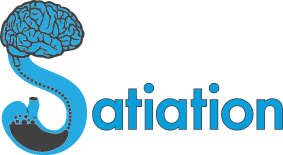We are Consumer Science...
What we eat and drink is not only vital to our health and longevity, but also influences our mood and mental performance. Gaining an understanding of the control of food choice and intake offers potential to address global grand-challenges such as obesity.
Food, cognition & behaviour
This project investigates the mechanisms linking mastication and attention to satiation enables activities that could directly reduce the prevalence of unhealthy eating habits including overeating. The results can be applied immediately by both the food industry and public health practitioners to benefit the health and wellbeing of the individual as well as the sustainability and health of society. Additionally, the project will inform future product or strategy development by determining the relative contribution of different oral processing and attention factors for satiation.
Focus areas
Behavioural science
We have considerable understanding of the psychobiology of eating behaviour. The ways in which we decide when, what and how much to eat are determined by a complex interaction of both internal (endogenous) and external (exogenous) factors. Psychological models of motivation and learning help us to understand how the intake of food and drink is controlled.
Neuroscience
The study of eating and drinking behaviour using models of motivation and learning help to propose hypotheses that can be tested using emerging technologies such as fMRI and EEG. Neuroscience offers insights into the mechanisms that control food choice and intake.
Product development
The application of behavioural science and neuroscience in the food and drinks industry has potential to identify products that offer a functional benefit that improves the quality of life of consumers.
Research strategy
We have considerable experience in the identification of research that offers the most effective return on R&D investment. Using data-mining technologies, we identify areas of patent white-space and link areas of research that offer opportunities for both scientific discovery and the generation (and protection) of IP.
Research value capture
Where our clients have been active in R&D for some time, we help to capture the value of their ongoing programmes. We help to take go/no-go decisions and build claims dossiers through our work in scientific and regulatory affairs.
Scientific & Regulatory Affairs
We are able to conduct comprehensive literature reviews to help you have a knowledge of existing and emerging published information. We can conduct basic literature reviews of both internal and external information to build new claims dossiers.
Our capabilities
Research strategy
Working in a variety of areas within the Behavioural Sciences and within the field of Nutrition enables us to define the vision and strategies to attain success in your field of endeavour. We will help you to scope how rapidly you can achieve your goals and their feasibility.
Innovation management
We have a unique perspective of the industries and areas in which we are active. We expect our activities to generate ideas and inventions that will be of value to you.
Project management
Once a clear vision has been defined and the strategy required to achieve success, we are able to use our project management skills to ensure that milestones are met on-time and in-full by realistically defining the tasks required and the risks that might be encountered.
You can also commission our sevices to directly manage or deliver part of your research strategy. The benefits of outsourcing certain tasks is that you can involve us when (and only when) you need our help or expertise.
Technical writing
We are able to help you summarise your results for interim and final presentation both within and outside of your organisation. We are adept at presenting information through written reports, Powerpoint presentations, websites etc. Our Associates have published fully-refereed scientific papers. We have a good grasp of the writing and publication process. Jon has regularly peer reviewed scientific manuscripts and has has been an Editor of the journal Animal Science.
Knowledge exchange
Our work with external partners seeks to build long-term relationships that are founded on mutual benefits. The two-way flow of information has advantages for both parties.
Partnering & engagement
We use data-mining techniques such as lexical clustering, co-citation analysis and patent searching to help decide who is the best partner to collaborate with. Research ecosystems are built on the foundation of open innovation; recognising that the best people and groups to collaborate with are often located outside of a client's organisation.

